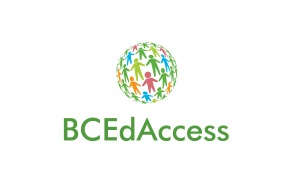BCEdAccess consulted with the over 4200 members of our online parent community and the recommendations in our joint report with BC Parents of Complex Kids, Family Support Institute of BC, and Inclusion BC from August 2020 still largely hold true today. Families in BC need information, choice, flexibility, and, above all, protection for our children and youth.
The main difference now is that with a significant increase in COVID-19 cases in BC with the extremely virulent Omicron variant, concerns are high around the safety of disabled children and youth and the ability to maintain staffing levels. Therefore, some additional considerations also apply.
Here are BCEDAccess’ recommendations to keep the concerns and needs of disabled students at the forefront of decisions in education.
IMMEDIATE RECOMMENDATIONS:
- Delay school start date to allow for time to implement safety measures
- Use the delayed start time to give boosters to school staff and the parents/siblings of vulnerable students, and get the next round of vaccines to vulnerable students themselves
- Expedite work on ventilation in schools and publicly and transparently share the details of where this stands for each school on an ongoing basis
- Check in with families of disabled children and youth to see what their current needs are, from internet and device access to food security to mental health and respite
- Have collaborative conversations with families to help them to understand their options
- Open schools first to vulnerable students, including students with disabilities and children of essential workers, as per the April 2020 plan
- Bring back the guidance guaranteeing 5 days a week, full time schooling for disabled students; otherwise they will be the first to be excluded. There is already a huge shortage of educational staff and Omicron is highly likely to reduce those numbers further.
- Re-mandate and fund flexible hybrid/home learning programs in school districts and allow independent school authorities to develop/enact the same
- Limit the number of staff working 1:1 with students and their mobility from class to class. This includes EAs rotating between multiple classes.
- Return to previous protocols around distancing, keep groups small and eliminate interactions between multiple classes.
- Review how lunch and recess will be managed, staggered break times, start times, etc.
- Use rapid testing as a way to measure and prevent outbreaks.
- Update the list of primary symptoms to check based on the difference in how Omicron seems to present, and be more stringent around very mild/minor symptoms.
EDUCATION-SPECIFIC RECOMMENDATIONS:
- Communicate exposures and outbreaks in classes and schools immediately and transparently so that families can make informed decisions about their health risk
- Reinforce and revisit proper mask use, hand hygiene, and distancing with students and staff.
- Supply in-home educational support for students who are not able to attend school
- Supply in-home care aide, nursing and other support for students who need it
- Longer term: engage in the work to create true multi-modal learning, which will support during times of crisis and benefit students in many other ways
OTHER RECOMMENDATIONS:
- Ensure childcare, community centres, Foundry mental health, etc. are open to the most vulnerable children and youth and their families as well as the children of essential workers.
- Reinstate the work from home order.
- Offer financial support to families who cannot both work at home and care for their children.
- Ensure availability of in-home and in-community additional support for those who need it
CONSIDERATIONS:
- Children in care
- Families at risk of separation
- Children moving between two parental households (family law issues surrounding transfer of symptomatic children when custodial transfer is supposed to occur)
- Learning loss/support loss, exacerbated by budget cuts in 2020/21 that impacted staffing, as well as continued teacher, EA and specialist shortages.
- Continued exodus of students to online learning – they will not return. Some families who would not have jumped to online learning had a sample of what life outside of the traditional education system was like last year: flexible, supported and customized to their student.
- Housing is a continued and hugely increasing pressure – many more families insecurely housed.
Parents are also tired of working to hold School Districts and independent school authorities accountable while balancing the needs of their families during pandemic life. We ask the Ministry of Education to take swift and effective action to hold School Districts accountable for all funded mandates of the past 2 years. This includes but is not limited to reporting on ventilation improvements, regular reporting on enhanced cleaning, accounting for the equipment acquired to facilitate remote learning, and exact reporting for what increased mental health resources were made available to students.
BCEdAccess has been part of ongoing discussions with the Ministry of Education around the needs and concerns of students with disabilities since March, 2020. We were disappointed to read an article declaring the January school start without being engaged by the Ministry of Education around the critical updates to pandemic measures for school districts and independent school authorities. Our expectation is that going forward, we will be involved in direct and continuous conversation with decision makers as things continue to evolve. Real-time engagement will ensure that you receive proactive and timely input rather than receiving our feedback as reactions after the fact.
Asking disabled students to stay home if they don’t feel safe is ableist. Action to specifically protect vulnerable learners will show that their safety needs are a priority. This is an opportunity to get it right, after a very isolating year where so many families just left altogether when they realized that no one was going to offer safe and equitable learning to their disabled children and youth.
When we ask for equitable access to education, it applies to health and safety too. Creating a safe learning environment for disabled students and staff benefits ALL students and staff, and the broader community.
Sincerely,
Tracy Humphreys, she/her
founder and Chair, BCEdAccess Society
tracy@bcedaccess.com
